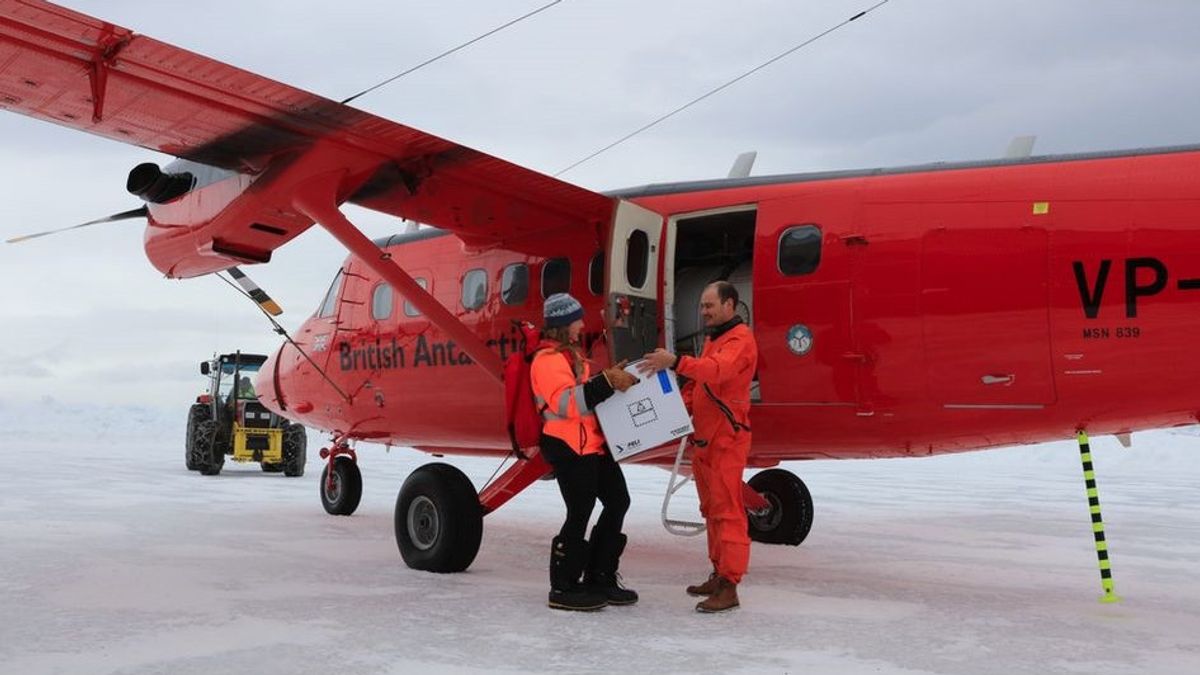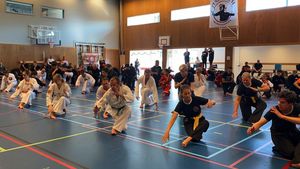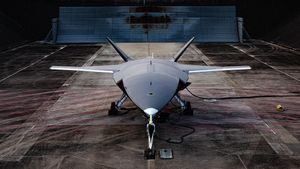JAKARTA - Nine months after it was first launched, AstraZeneca's COVID-19 vaccine arrived at the South Pole or Antarctica, after a long journey.
The vaccine brought this time is intended to immunize 23 staff members of the UK's Rithera research station, ensuring the facility remains active over the coming winter.
It was flown in this week to immunize 23 staff members who have been keeping Britain's Rothera research station running through the polar winter.
It is the southernmost shipment for a vaccine being developed at the University of Oxford. Apart from a few cases at the Chilean base, Antarctica has been COVID-19 free. And, international science bodies want to keep it that way.
As the new summer research season approaches, strict health protocols will be reinstated.

For example, the crew of Britain's new polar ship, the RRS Sir David Attenborough, will soon be quarantined before they head to the South Pole next month with equipment and supplies.
Delivery of the AZ vaccine to Rothera is a long and grueling route, a nearly 10,000-mile journey that begins with an RAF Voyager flight from Brize Norton and includes stops in Senegal and the Falklands.
Another challenge comes in shipping, namely the vaccine must be stored at a temperature of 2 - 8 degrees Celsius, using storage containers for special transportation.
A small Twin Otter aircraft was used for the final trip to the Rothera British Antarctic Survey (BAS) base on Tuesday last week.
The first doses of the AstraZeneca vaccine are now in the hands of the station's scientists, engineers, and support staff, staffed by on-site doctors. Meanwhile, the second dose is planned to be given within the next four weeks.
In fact, Rothera has been in lockdown since March when only a group of core staff was maintained on the continent, enduring the darkness and inclement weather that is the hallmark of polar winter.

They will now have immunity when visitors start arriving for the summer research season.
"People will start flying from October 20 onwards, so 'over-winterers' will have at least one dose," explains John Eager, head of polar operations at BAS.
"But we still aim to provide extra reassurance. And that means everyone who gets off the Antarctic station this year will be quarantined 14 days prior to arrival," he told BBC News.
Rothera winter station leader Matthew Phillips added: "After being completely alone for 205 days, through the Antarctic winter, there is always excitement around the station in the days and weeks before the first plane arrives, which marks the end of winter. Also at the sight of familiar faces back, we also got our first mail, and the first fresh fruit and vegetables since late summer."
"Incorporating a COVID-19 vaccine has made it an even more unique experience. Being able to vaccinate people will help keep the station population and Antarctica COVID-19 free. This puts us in a great position ahead of a busy summer at the station and in the field." he said.
This is the furthest region the AstraZeneca vaccine has ever reached. And that means all of the continents have now received at least a few doses.
SEE ALSO:
This long-distance delivery is organized by the non-profit international development organization, Crown, on behalf of the Ministry of Foreign Affairs.
"We've been working since March to deliver a vaccine, literally to the ends of the earth," said Crown Agents CEO Fergus Drake.
"And it often takes four or five modes of transportation to get to some of these places. Getting the vaccine to the Pitcairn Islands and the 47 people there requires taking a long boat, because that's one of the few ways you can land on those islands."
Last year, there was one case of COVID-19 in Antarctica in December, precisely at the Bernardo O'Higgins research station in Chile. However, the patient was immediately evacuated and replaced with a corona-free one.
The English, Chinese, Japanese, Arabic, and French versions are automatically generated by the AI. So there may still be inaccuracies in translating, please always see Indonesian as our main language. (system supported by DigitalSiber.id)


















